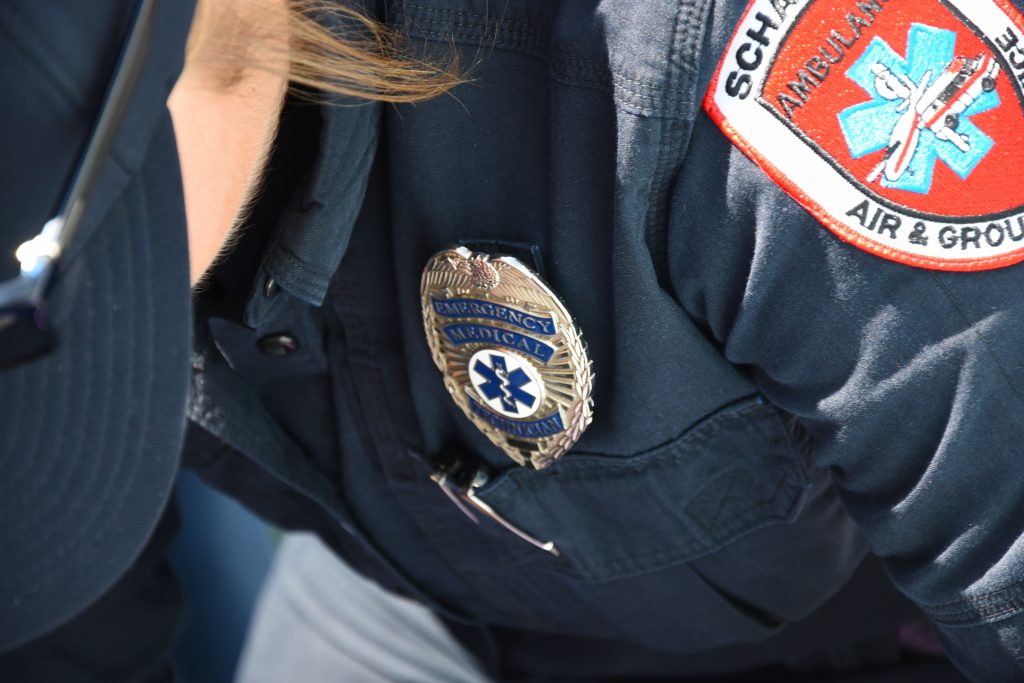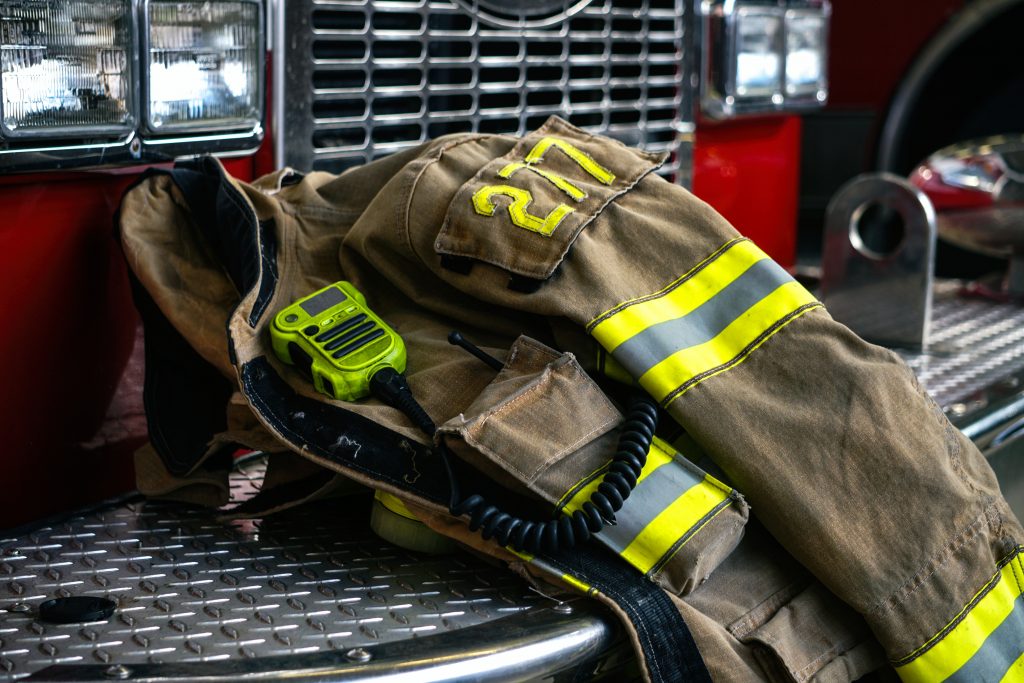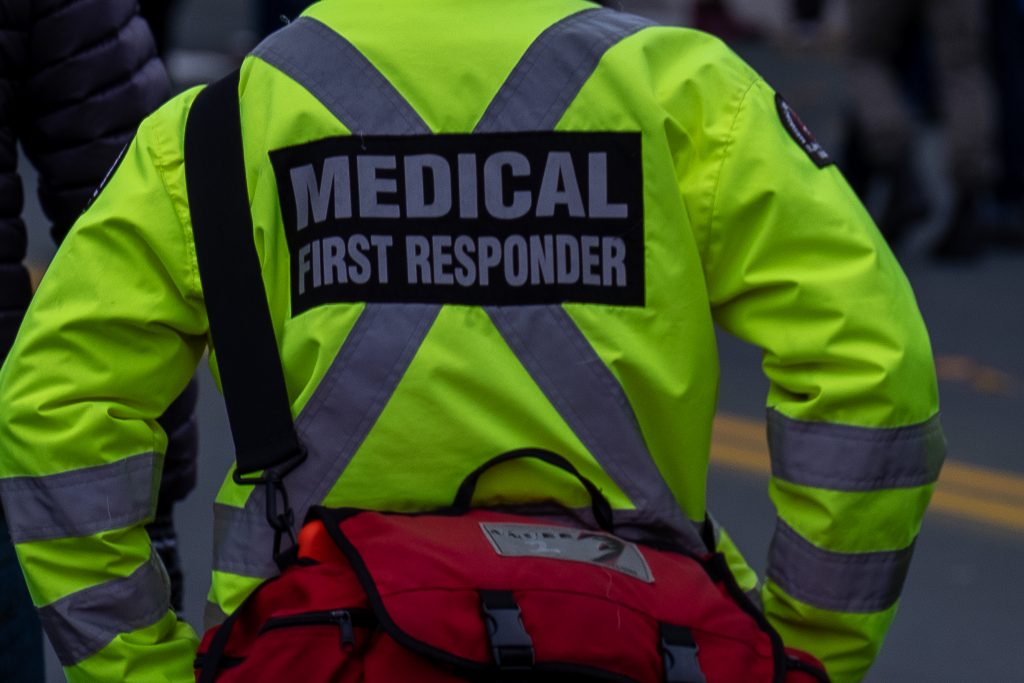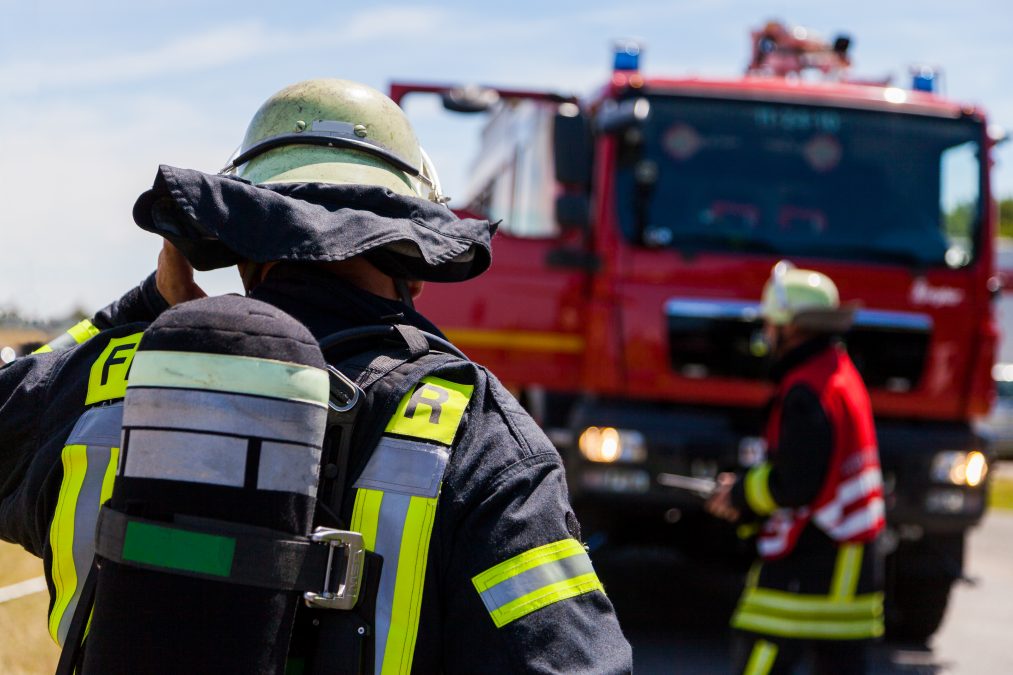Steamboat has experienced many challenges over the last year, from the pandemic to the wildfires north of town, and crisis response is more important than ever for both community members and first responders. One of the best things about living in a small mountain town like Steamboat is its strong sense of community, and that’s never more apparent than during a crisis when people come together to support each other, not just as individuals, but as a collective.
Still, that can be a double-edged sword, says Marnie Smith, Vice President of Routt County Crisis Support (RCCS), a non-profit that provides support to the community and individuals in times of crisis. “In our small town, if there is a death in the community, chances are everyone knows the person, so we are all affected,” says Smith, who has been a firefighter/paramedic with Steamboat Fire Rescue since 2007 and is also a flight medic with Steamboat-based Classic Air Medical. “Everybody knows somebody.”
That’s one of the many reasons Smith and Molly Lotz joined forces to found RCCS as a non-profit in 2017. Born from the Steamboat Community Assistance Fund, created in 2010 to provide emergency assistance following a life-changing event, the organization has grown enough to offer four specific behavioral and financial support programs after a critical incident, including Routt County Emergency Assistance, Community Crisis Response Team, Routt County First Responder Mental Health Assistance, and Routt County Peer Support.

Lotz, RCCS President, has a background in critical support services at the hospital and local schools and helped Smith to expand and develop these four specific RCCS programs, particularly the Community Crisis Response Team.
“When a person or group in our community is exposed to significant traumatic events within the scope of daily life, say a car accident on their way to work or a fire at their home, we send in a community crisis response team to do a critical incident debriefing,” Lotz says. “We encourage a group of people who experienced the same event to gather within 24 to 72 hours to help process and put the pieces back together, and to give people a semblance of what happened.” Lotz says this approach, the Mitchell Model of Critical Incident Debriefing, helps with the early processing of a traumatic event and can significantly minimize the impact and accelerate the recovery process. “It allows people to come together as a group to process the actual chronological events that lead to the culmination of the incident,” Lotz says. “If you only have your own experience, it’s hard for your brain to gain an understanding of what happened before, during, and after. This gives folks the opportunity to put the puzzle pieces back together.”
As a first responder, Smith has the perspective and boots-on-the-ground experience to help cultivate the programs for first responders, a rare breed that is high functioning in a crisis but doesn’t always know how to ask for help when they need it. “If we’re dealing with a crisis, that’s where we are the most comfortable,” Smith says, noting that the wildfires this summer were business as usual from her perspective, and first responders actually thrive on the opportunity to do the jobs they’ve trained so hard for. “I’m not saying that’s a great way to function; it’s messed up for sure. But it’s real, and it’s awful, and it’s the reason suicide rates are so high in the first responder world. You are supposed to be stoic, and we put up this very real façade. We can’t be vulnerable when we’re on the job, so we are very reluctant to open up or to let someone know when we need help.”

Lotz says they began by looking at how first responders access mental health. “The short answer is they don’t, for a variety of reasons,” Lotz says. “There is a real stigma associated with mental health in our society to begin with, but it’s even more intense for first responders who feel many impediments to admitting when they’re vulnerable. There is a certain degree of emotional distance necessary for first responders to be able to do their jobs,” Smith says. “That makes it harder to ask for help when they need it. At the same time, mental wellness is essential for longevity in the field, especially during a global pandemic when routine calls can potentially pose a much greater risk to the first response team if someone is knowingly or unknowingly infected with Covid-19.”
Lotz and Smith worked hard to recruit a roster of vetted local clinicians and therapists who would be accessible and available to meet the needs of first responders within 48 to 72 hours of a crisis, not six weeks later. “We also had to find therapists who understand the first responder brain who would be appropriate for this,” Smith says.

That resistance to counseling was also the basis for Routt County Peer support, which provides a network for first responders to be able to turn to each other in times of need. “It’s uniform to uniform, a first-line mental health support network to enable us to support one another,” Smith says. “The theory is, I’m in a uniform, I get it, let’s talk this out. Seven out of 10 times, it stops there. It’s very helpful because we trust each other more than we trust a therapist. They’ll talk to me because I’m distant enough, but I still have the first responder brain.” Smith says it’s also allowed all the first responders in Routt County to get to know each other better and support one another. “What I love is that we have over 280 first responders, and it’s really helped us build strong relationships between all our agencies. It makes me smile to think that everyone is working together. All I can think is that it should have happened a long time ago.”
She’s not the only one. “We hear people say, ‘I wish I had known about you,’ a lot,” Smith says. “I’ll be happy when I don’t have to hear that every day.” //routtcountycrisissuport.org

